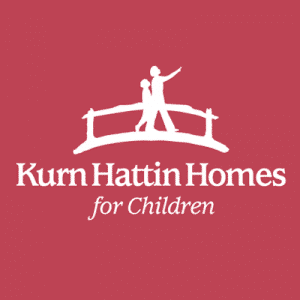Kurn Hattin celebrates an historical milestone
In 1849, when Boston clergyman Charles Albert Dickinson started Kurn Hattin on a pristine Vermont hillside overlooking the Connecticut River Valley, the school consisted of two students, one teacher and two house parents. Fast-forward to 2019 and approximately 85 students are now enrolled and staff has increased as the school celebrates its 125th anniversary.
In those early days, Kurn Hattin served as a safe haven for children living in dysregulated homes. Today, the school continues to provide a secure, nurturing environment for children who would otherwise be living in households with social, financial and other challenges.
Steve Harrison, executive director, attributes the school’s longevity to two factors. He explained that the need for this type of facility existed in 1849 and continues into present day.
Harrison emphasized that Kurn Hattin is not a special education school, although staff is knowledgeable about trauma-informed care and attendant problems. “But we don’t provide those services. We are trying to meet the needs of children in a safe, nurturing place to stay,” he said. “We’re a home first; education comes along second. Safety and security are the primary goals.”
The school is staffed with two full-time nurses, a consulting physician and master’s level counselors who provide support.
Early in the school’s history, the curriculum comprised classroom work as well as hands-on experience on a farm or in the manual arts building where students could learn a trade, such as typesetting, engine repair, or woodworking.
Over time, the entire curriculum has changed, according to Harrison, and is now geared toward career development that meets today’s needs. Kurn Hattin has been state certified in the past and is currently involved in the accreditation process with NEASC (New England Association of Schools and Colleges).
Sue Kessler, assistant executive director, credits alumni, in part, for keeping the school afloat. She called them the “most wonderful ambassadors” who readily give testimony to the difference the school has made in their lives. “They think of Kurn Hattin as family and reach out to us if they bump into difficulties in life,” she said.
Kurn Hattin does not charge tuition, but relies on the generosity of alumni. “We collect less than $50,000 from all students combined and have a $5.5 million budget,” Harrison said. Additionally, the school receives some financial support from the federal and state government and from some non-charitable sources. The school also has an endowment from which it receives most of its financial support.
While Kurn Hattin is fortunate to have a supportive group of alumni, the school has also been blessed with good administrators, principals, house parents and teachers who have made a positive impact on students, Harrison said.
Kurn Hattin kicked off its 125th anniversary celebration in April with a select choir heritage tour on the eastern seaboard. Festivities continued with a “hugely expanded” fall festival in September.
Harrison explained that the school derives its name from the site in Israel where the Sermon on the Mount was reportedly delivered. “It means place of blessing,” Harrison said. He explained that the landscape in both locations is similar. “If you live here, you look at the hills of the Connecticut valley. We frequently get afternoon rain followed by full rainbows.”
Phyllis Hanlon has been a regular contributor to New England Psychologist since 1999. As an independent journalist, she has also written for a variety of traditional and alternative health magazines and business consumer and trade publications. She also serves as writer/editor for custom publications.


September 17th, 2020 at 7:32 am kurn hattin abused posted:
kurn hattin abused posted:
kurn hattin surrendered its license after child abuse occurred.